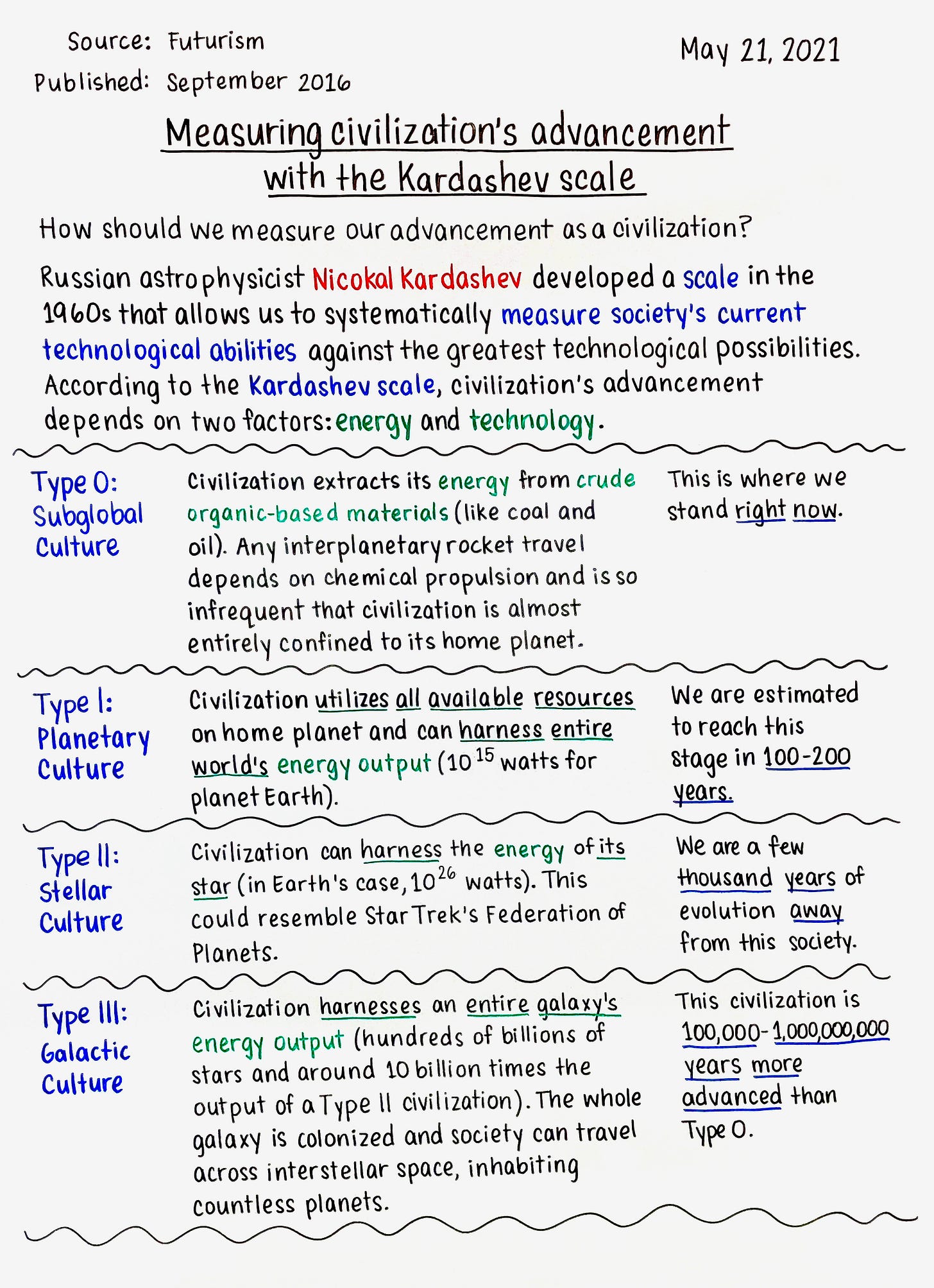May 21: Measuring civilization’s advancement with the Kardashev scale
A model to systematically measure society’s current technological abilities against the greatest technological possibilities.
Have a perspective on how we should measure our advancement as a civilization? Join the discussion with other readers.
Source: Futurism
Published: September 2016
Measuring civilization’s advancement with the Kardashev scale
How should we measure our advancement as a civilization?
Russian astrophysicist Nicolai Kardashev developed a scale in the 1960s that allows us to systematically measure society’s current technological abilities against the greatest technological possibilities. According to the Kardashev scale, civilization’s advancement depends on two forces: energy and technology.
Type 0: Subglobal Culture
Civilization extracts its energy from crude organic-based materials (like coal and oil). Any interplanetary rocket travel depends on chemical propulsion and is so infrequent that civilization is almost entirely confined to its home planet.
This is where we stand right now.
Type I: Planetary Culture
Civilization utilizes all available resources on home planet and can harness entire world’s energy output (10^15 watts for planet Earth).
We are estimated to reach this stage in 100-200 years.
Type II: Stellar Culture
Civilization can harness the energy of its star (in Earth’s case, 10^26 watts). This could resemble Star Trek’s Federation of Planets.
We are a few thousand years of evolution away from this society.
Type III: Galactic Culture
Civilization harnesses an entire galaxy’s energy output (hundreds of billions of stars and around 10 billion times the output of a Type II civilization). The whole galaxy is colonized and society can travel across interstellar space, inhabiting countless planets.
This civilization is 100,000-1,000,000 years more advanced than Type 0.
------------
Did you appreciate the fact today?



Good fact! Wattage amounts are incorrect though: I replied with a note about this. See the native article for the correct amounts.